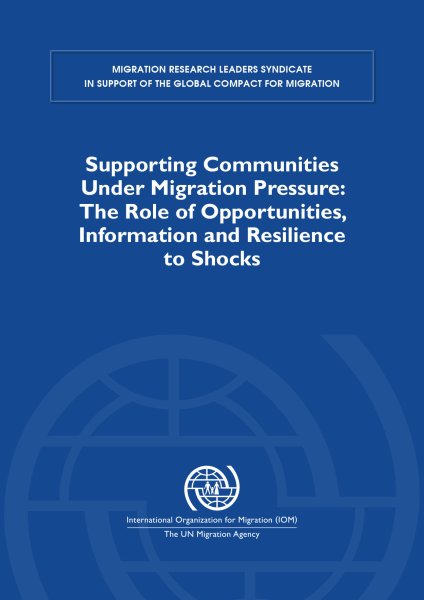Supporting Communities Under Migration Pressure: The Role of Opportunities, Information and Resilience to Shocks

International migration is at the core of the international debate. However, while a major part of the discussions focus on migration policies in receiving countries, it is important to recall that most people are not willing to migrate permanently to another country. It is thus crucial that policymakers also support those who prefer to remain in their communities of origin to resist the migration pressure they may be facing. Consequently, this analysis aims first to identify what drives this migration pressure, and second to formulate a set of recommendations to support those communities. With regard to the drivers, evidence suggests that, contrary to a common belief, poverty reduction will not necessarily alleviate migration pressure. Reducing poverty is an aim, per se, no matter its effect on migration. However, it is not a panacea, and other factors explaining the migration pressure should be considered. The urge to move can be due to the fact that potential migrants, in particular those willing to migrate illegally, tend to formulate biased expectations about their earnings and living conditions abroad. For people who have not moved yet, expectations from the migration experience are often based upon perceptions of the living conditions of their families and relatives who migrated. Those relatives – through their remittances and the status their families that are left behind acquire within the communities – can lead some to think that success is guaranteed with migration. This in turn can spark the desire to move at any cost, raising the issue of relative concerns about what matters in the decision to leave. Another possible driver of migration pressure is negative shocks, such as adverse climatic conditions. Climatic factors and natural disasters can lead to more migration if other survival strategies have failed, when the severity of the shocks does not leave any other option than moving, and when people can afford migration costs.
